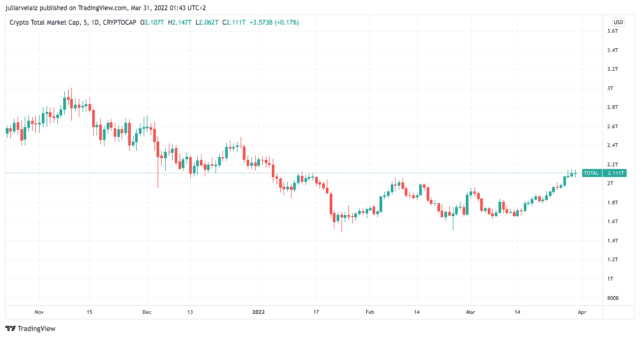Two crypto scam-related lawsuits stack up on top of Meta’s (Facebook’s new name) large pile. The allegations and the company’s reactions serve well to form an opinion about a possibly disastrous metaverse of our future.
What We Now About Facebook’s Metaverse
The metaverse aims to be a future virtual reality, a merger of social media and AR technology that would allow people to ‘connect’ through an alternate digital world.
The original concept is not Meta’s, but the rebranding of the company’s name and the large amount of investment put into building it has them in the leading position.
The ideas and tech are still under development, but it promises such great revenue that many other large companies are eager to take a big piece of the pie.
“Metaverse isn’t a thing a company builds. It’s the next chapter of the internet overall, ” Zuckerberg claimed once. “Our goal is to help build the fundamental tech to bring the metaverse to life.” But again, the fact that they renamed the company ‘Meta’ points toward a plan to rule over this new virtual world.
“It’s like the Holy Grail of the types of social experiences that a lot of people at Meta have wanted to build for a long time. And now the technologies are at a starting point where it’s possible,” Zuckerberg said.
Zuckerberg believes that the future of the metaverse will belong to the companies that “care the most”, the Austin American-Statesman quoted. Most likely, the ones that put the larger funds into it. And if that’s Meta, what will it mean for Metaverse’s users?
Meta Dirt
The first lawsuit involving Facebook (or Meta) traces back to 2004. In total, Wikipedia records 57 lawsuits.
Meta has been largely criticized and investigated for its large impact on people and how they could be using that to manipulate the masses.
And at the main core of this manipulation, there is Meta’s irresponsible and unethical use and collection of the user’s data. The more data they collect, the more money they can make. Say someone wants to ‘buy’ an election through targeting misleading ads at a susceptible public, why not choose Meta to do it?
But there’s more. A company that makes so much profit out of advertisement should certainly have a proper security protocol to verify that these ads are not scamming its users. Well, apparently their technology is not enough to do this.
Forbes reported that first the Australian billionaire Andrew Forrest and now the Australian Competition & Consumer Commission (ACCC), a government agency, are suing Meta over its lack of protection for the crypto scams that are advertised all over the platform.
Forrest alleges that he approached the company and Mark Zuckerberg himself because “innocent Australians…kept investing under [his] name,” but did not succeed in convincing the company to even remove the ads.
In Forrest’s “private prosecution” criminal complaint, he claims that Facebook has not done enough to stop criminals from using the platform to scam people. The ACCC echoed the claim in a different lawsuit over “misleading conduct by Meta for publishing scam celebrity crypto ads on Facebook.”
The scams use the names and images of celebrities and popular companies to promote false investments in cryptocurrency or money-making schemes, taking Facebook users to fake media articles, inviting them to sign up, and then using pressure tactics to convince them to deposit funds into fake schemes.
“The essence of our case is that Meta is responsible for these ads that it publishes on its platform,” ACCC Chair Rod Sims said.
A Facebook spokesperson told Forbes: “We don’t want ads seeking to scam people out of money or mislead people on Facebook – they violate our policies and are not good for our community,” and added that “We use technology to detect and block scam ads and work to get ahead of scammers’ attempts to evade our detection systems.” So why haven’t they deleted ads that have already scammed people?
Allegedly, Facebook had told Forrest that they didn’t have the algorithms to identify scams. “Why wouldn’t you have one person identifying this?” he thinks, “They refused to do anything that wasn’t algorithmic.”
This situation has also been reported in other countries, but many legal frameworks absolve the company. Forbes explains that in the U.S., Section 230 of the federal Communications Decency Act absolves liability for internet companies from third-party content published on their platforms.
Related Reading | Facebook (Meta) Removes It’s Ban Of Crypto Ads
Meta To Lead Future Crypto Scams?
Now imagine Meta leading an alternate reality.
To that, add the fact that the DeFi ecosystem is currently overflowing with scams.
The metaverse uses a great deal of crypto technology like NFTs, to many users this is part of the attractive. But if Meta is not willing to have a team or proper tech taking care of false advertisements on its social media platform, what kind of catastrophes could happen in its virtual world?
More than leading “the Holy Grail of the types of social experiences,” Meta could become a leading aid to crypto fraud schemes.
Related Reading | Facebook’s Crypto Project Diem Collapses, Sold After Political, Regulatory Firestorm


